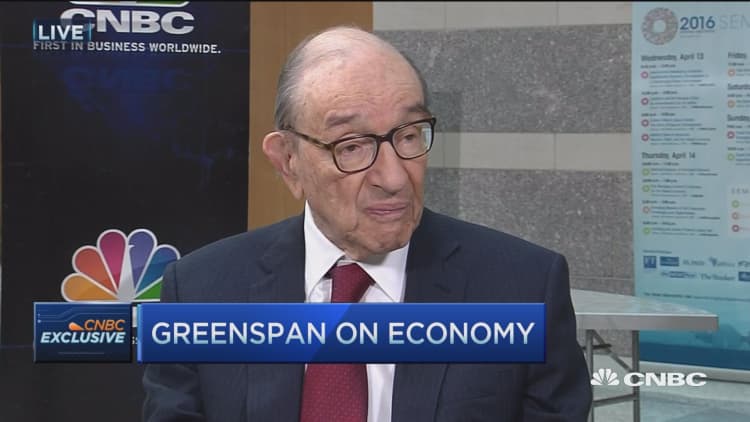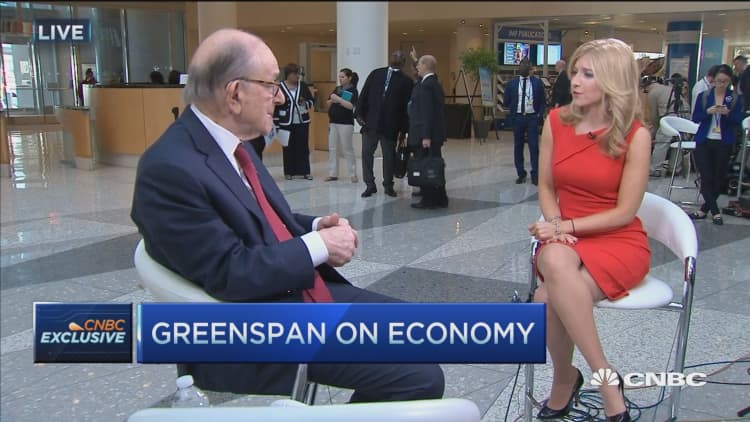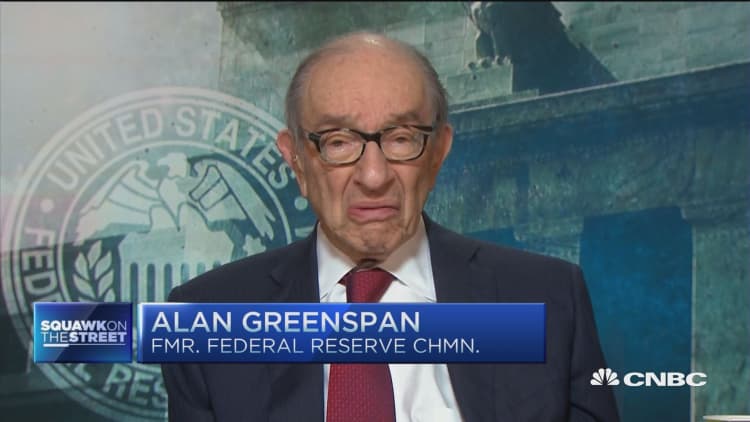


Former Fed Chairman Alan Greenspan said Thursday that monetary policy has reached the outward bounds of its effectiveness without another round of quantitative easing.
"Monetary policy … has done everything it can unless you want to put additional QEs on. They're not helping that much in the sense that ultimately determines whether or not you're getting an effect from the QEs" beyond increasing price-to-earnings ratios in the stock market, he said during an interview on CNBC's "Squawk Alley."
"There's no real evidence that we're getting an impact on lending and on the economy picking up," he said.
Greenspan said he disagreed with International Monetary Fund Managing Director Christine Lagarde that negative interest rates create a net positive impact. Lagarde offered the assessment earlier on "Squawk on the Street."
Japanese and European policymakers have pushed some key rates into negative territory.
Negative interest rates "hurt in the sense that financial intermediaries require positive interest rates, but I wouldn't blame it on the negative interest rates, I'd blame it on the policies that got us to where we are," Greenspan said.
Anemic productivity growth and flagging corporate profits can be traced to too much entitlement spending as the world's population ages, Greenspan added.
"If you look at it in a bookkeeping sense, it's because gross domestic savings, everywhere across the spectrum — the political spectrum — has been severely undercut by social benefit increases in virtually every single major country," he said.
"It's fundamentally … a political problem," he said.
Greenspan said he believed that problem could have been solved in the United States had Congress taken up the fiscal policies put forward by Alan Simpson and Erskine Bowles in 2010. The bipartisan plan created "a very clever way of controlling the deficit," he said.
Correction: Greenspan was interviewed on CNBC's "Squawk Alley."



